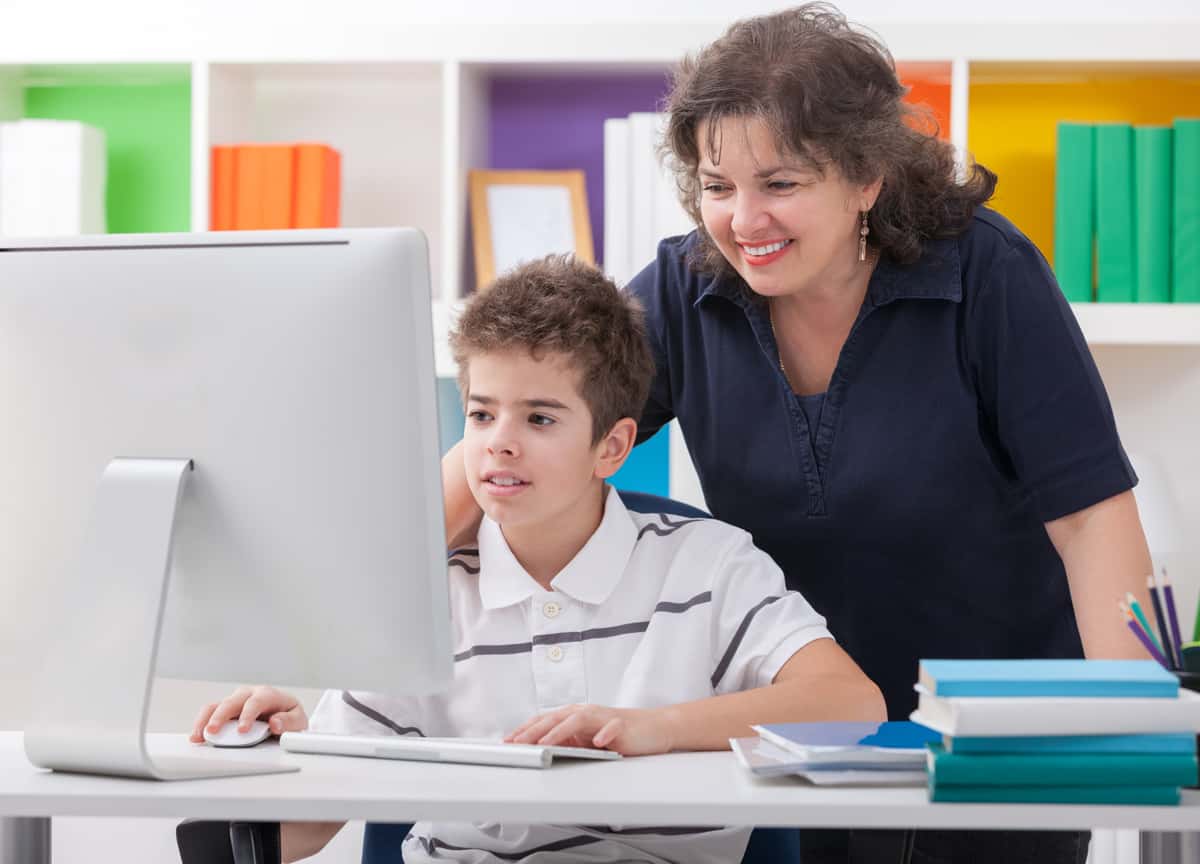Self-quarantining and social distancing measures this spring because of COVID-19 led to widespread disruptions in people’s schedules. Adjusting to those changes took a toll on everyone — young and old — and particularly children on the autism spectrum, who can experience enormous anxiety when deviating from routine. To help parents navigate the new terrain, Southern’s Center of Excellence on Autism Spectrum Disorders created Friday Friendly Forums, a series of five conversations with center staff on a variety of autism spectrum disorder topics. The forums are free and can be viewed online at any time.
“The idea was to support caregivers,” said Kari Sassu, a research scientist with the center.
That support is critical: It can mean the difference between optimism and despair, and between healthy growth and discouraging setbacks. It has everything to do with how the center serves and supports the region, from top to bottom — so that thousands of children and young adults with autism in the state get the chance they deserve to live happy, productive lives. And during the pandemic, the center didn’t stop its outreach efforts.
“For people with autism, the loss of routine has affected them so much,” Sassu said. “That causes anxiety and behavioral changes. The center may be physically closed right now, but its support isn’t.”
The first Friendly Forum, “Structure and Flexibility,” provides support for families and caregivers of children with ASD as they navigate the homeschooling experience. It was born of Sassu’s own experience as a full-time working parent of children on the spectrum who recognized “the importance of structure and predictability.”
“There are competing demands,” Sassu said, “for parents who have work and there may be other children, too. A lot of our kids on the spectrum need a schedule and guidance to execute extra tasks. That can be daunting, to spin all of those plates simultaneously.”
The second, “Virtual PPT Meetings,” is led by Sassu and Kimberly Bean, another research scientist with the center. Much like it sounds, it discusses considerations for planning and placement teams (PPT) to meet virtually, which Sassu said can be overwhelming.
“We heard parents were really struggling with that,” Sassu said.
Forum three, “Transitioning to Homeschooling,” is a discussion of the ups and downs associated with transitioning to homeschooling. Four is “Supporting Communication,” guidance offered by Barbara Cook, assistant professor in the Department of Communication Disorders at Southern, and five is “Self-Care for the Caregiver,” led by Sassu, who talks about the concept of self-care and its importance, especially as it relates to those caring for children with special needs right now.
In addition to the forums, the center has organized a free virtual program, SCSU CCD PEERS, a young adult social skills program based on the UCLA PEERS program, which is an evidence-based, caregiver-assisted social skills intervention for youth 18 – 21 years old with ASD. The program covers conversational skills, dating skills, peer pressure, electronic communication, and more. Sessions are held via Zoom on Mondays, 6 p.m. to 7 p.m. The final session is July 27.
The center also created a First Responders Autism Training program, an online course that began in January 2020 that’s especially relevant given the increased reliance on medical professionals during the pandemic.
“If an ENT shows up if someone is injured and there’s no training already, it’s important for them to have the background so they better know how to care for someone who is on the spectrum,” said Meaghan Reilly, a student worker at the center. The course includes a video presentation and a live discussion board via Zoom with one of the team members from the center.
Sassu said the center’s online offerings will continue to expand throughout the summer with webinars about Title IX and the International Disability Alliance, which improves awareness and rights for individuals with disabilities.
“We’re also in the process of putting together a series of talks for students with autism spectrum disorders on college campuses,” Sassu said. “There are some for students and some for faculty, and then some for peers. Also, a training series for school-based professionals. If students on the spectrum are going to transition back to school or continue online, they’re going to need help to address transitioning.”
Response to the online forums and offerings has been encouraging as the center continues its commitment to providing much-needed services.
“This is an unpredictable time,” Sassu said. “We all are going day-to-day, but for people with autism, it’s unsettling. The question is, how can we make it work so everyone — parents, teachers, providers, and students — are their best?”


